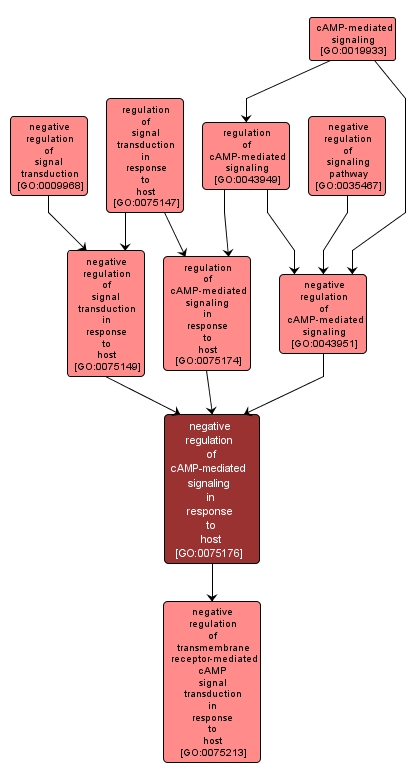GO TERM SUMMARY
|
| Name: |
negative regulation of cAMP-mediated signaling in response to host |
| Acc: |
GO:0075176 |
| Aspect: |
Biological Process |
| Desc: |
Any process by which the symbiont organism stops, prevents or reduces the frequency, rate or extent of its cAMP-mediated signal transduction as a result of detecting molecules of its host organism. The host is defined as the larger of the organisms involved in a symbiotic interaction. |
Synonyms:
- negative regulation of symbiont cAMP-mediated signal transduction in response to host
- negative regulation of cAMP-mediated signal transduction in response to host
- negative regulation of cAMP-mediated signalling in response to host
|














